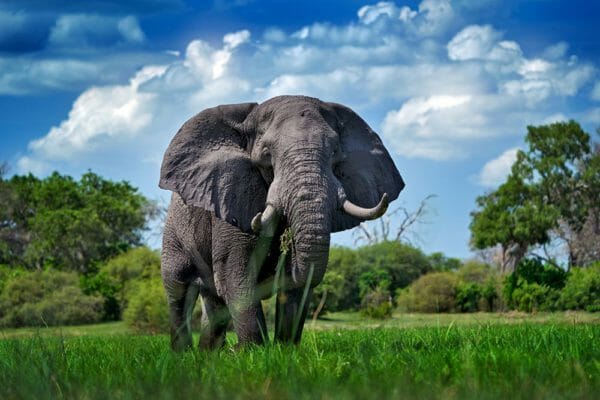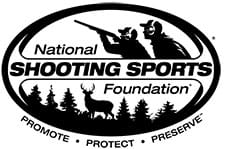
The Nonhuman Rights Project (NhRP) can’t take a hint, let alone a strongly-worded legal decision stating their ongoing efforts to gain “personhood” rights for elephants is absurd. It’s said the definition of insanity is doing the same thing over and over again and expecting different results.
That would apply here, yet again, to NhRP’s latest attempt at legal gymnastics. During their most recent failed attempt at having a court deem Happy the Elephant, in the care of the Bronx Zoo, a person with rights, the judges were irritated at NhRP’s claims.
“If Happy is a person, does that mean that I couldn’t keep a dog?,” Judge Jenny Rivera asked the attorneys representing the Nonhuman Rights Project, Inc. (NhRP). “I mean, dogs can memorize words.”
They rejected NhRP’s legal challenge in June of last year. Now, NhRP is giving it another go. This time in Colorado.
Same Lawsuit, Different Court
The Nonhuman Rights Project is an activist animal rights group that sues organizations like zoos and animal refuges in the hopes they settle, and therefore agree to “personhood” rights for animals.
The group filed a lawsuit in the El Paso County District Court in Colorado against the Cheyenne Mountain Zoo, claiming five elephants under the care of the zoo, “suffer chronic stress and health problems because of their captivity and environment.”
The elephants, Jambo, Kimba, LouLou, Lucky, and Missy, were all born in the wild in Africa and brought to the United States in the 1970s and 1980s as calves and raised under the care of zoologists and professionals since that time, according to the Denver Post. NhRP’s lawsuit seeks to have the elephants taken from the Cheyenne Mountain Zoo and released back to a sanctuary. NhRP’s attorney said in a release, “From the moment their adult family members were likely killed in front of them and they were sold off to be put on display and put to work in circuses and zoos, these elephants’ lives have consisted of one trauma after another.”
The Cheyenne Mountain Zoo, located in Colorado Springs, wasn’t having it. In response to being notified of the activist group’s lawsuit, zoo officials called out NhRP activists for who they truly are.
“The group filing the lawsuit is known for wasting credible organizations’ time and money,” they said in a statement. “We exist to advance animal welfare and conservation. Our elephant care team knows the needs of our elephants and tailors specific care and exercise programs and tends to each elephant based on their preferences. Suggesting they’d be better off at a sanctuary is simply incorrect. Knowing what’s considered best for elephants, in general, does not equal knowing how to give Jambo, Missy, LouLou, Kimba or Lucky the care they need.”
The zoo recently spent $13.5 million on a renovation project specifically pegged to updating the elephant accommodations.
The Last Legal Lunacy
The last time NhRP tried this legal lunacy, they spent millions of dollars over several years only to be rejected several times trying to get Happy the Elephant to be deemed a person with rights. Happy was brought to the Bronx Zoo in 1977. The 50-year-old elephant was in the care of zookeepers, well-fed, bathed, and watched over. Happy even has a social life with visitors and other elephants. NhRP brought lawsuits in 2018 and 2020; both were rejected. They tried again in 2021 when an appellate court agreed with the ruling of a lower court. Next, the case to the New York Court of Appeals, the highest court in New York, which rejected NhRP’s claims in a 5-2 decision.
“While no one disputes the impressive capabilities of elephants, we reject petitioner’s arguments that it is entitled to seek the remedy of habeas corpus on Happy’s behalf,” Chief Judge Janet DiFiore wrote. “Habeas corpus is a procedural vehicle intended to secure the liberty rights of human beings who are unlawfully restrained, not nonhuman animals.”
Far-Reaching Implications
The several failed lawsuits filed by NhRP aren’t just a waste of their money and an unnecessary burden on the courts. The group’s argument has severe and far-ranging implications should a court ever rule in its favor.
If the courts decided Happy, Jambo, Kimba, LouLou, Lucky, and Missy, or any other animal at a zoo did indeed possess personhood rights, the floodgate would open for future lawsuits against other zoos. Anti-hunting and animal rights activism wouldn’t stop there. Animal rights groups could sue dairy cow or meat processing operations, pig farms, or chicken or pheasant preserves. The New York Farm Bureau even submitted an amicus brief in favor of the Bronx Zoo, warning that a ruling in NhRP’s favor during that legal challenge could be disastrous.
“Worse, if any of those habeas petitions succeed in securing the release or transfer of livestock… the downstream effects also would be serious.”
That would also be an obstacle to hunters harvesting wild game for their freezers and wildlife management biologists that rely on hunting as a wildlife conservation management tool.
It’s not in their organizational DNA, but NhRP would be wise to take their previous losses and stop. Forget about Jambo and company – they are faring wonderfully in the care of the professionals at the Cheyenne Mountain Zoo in their multimillion-dollar, 10-acre home. The North American Model of Wildlife Conservation demonstrates that when a society puts intrinsic value on wildlife, those species prosper.
NhRP’s goal wasn’t to free Happy or to free Jambo and the other four elephants in their new legal fight. Their goal is to force a radical anti-hunting agenda by judicial precedent that would disenfranchise hunters – the original conservationists who contribute more than anyone else to the success of thriving animal populations.
About The National Shooting Sports Foundation
NSSF is the trade association for the firearm industry. Its mission is to promote, protect and preserve hunting and shooting sports. Formed in 1961, NSSF has a membership of thousands of manufacturers, distributors, firearm retailers, shooting ranges, sportsmen’s organizations, and publishers nationwide. For more information, visit nssf.org

